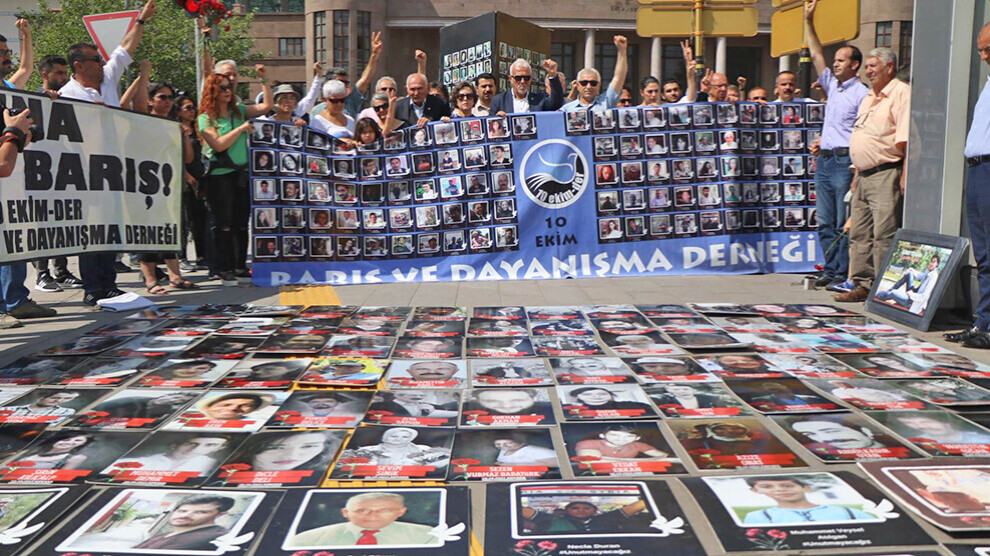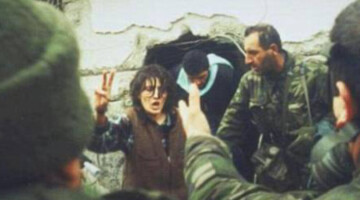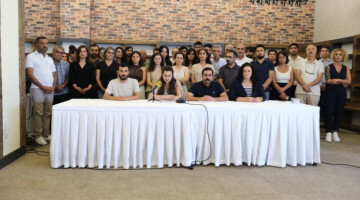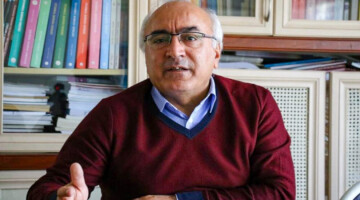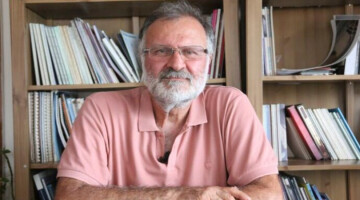10 OCTOBER ANKARA MASSACRE
10 October 2015 is etched in the collective memory of the peace movement and democratic opposition in Turkey and Kurdistan as a day of horror and terror. While the Turkish state unilaterally ended the peace process, the army razed Kurdish towns to the ground that had declared democratic autonomy after the elections were cancelled and armed ISIS against the self-government in Rojava, countless people still protested for peace. At a large rally called by the HDP, the trade union associations KESK and DISK, the Chamber of Architects and Engineers (TMMOB) and the Turkish Medical Association (TTB) under the slogan "Labour, Democracy, Peace", two ISIS assassins blew themselves up in front of Ankara Central Station, killing 104 people and injuring more than 500 others, some of them seriously.
In a report by civilian inspectors from the Ministry of the Interior, there was talk of "neglect" of the duty by the deputy police director of Ankara to guarantee the safety of the rally participants. Even the Ministry of the Interior had to admit in the report that the intelligence service had received information that Yunus Emre Alagöz, one of the attackers, was preparing a suicide attack. Apparently, Alagöz was already under surveillance. Yunus Emre Alagöz was the brother of the ISIS assassin in Suruç massacre, Şeyh Abdurrahman Alagöz, who murdered 33 young activists who wanted to take humanitarian aid to besieged Kobanê in July 2015. While Kurdish activists are imprisoned for a critical social media post, the preparation of a mass murder was apparently not enough for an ISIS jihadist.
The report also refers to the use of tear gas against the survivors. Even though the report denies that there were deaths due to the use of tear gas, it confirms once again that the victims were targeted by the police with tear gas after the massacre. In this respect, this report would have provided a basis for a lawsuit despite its one-sided partisanship in favour of the state. Nevertheless, the Constitutional Court followed the position of the governor of Ankara and the public prosecutor's office not to allow a lawsuit against representatives of the Ankara Police Directorate. This means that the national legal process has been exhausted and the path to the European Court of Human Rights (ECtHR) is open.
The Constitutional Court (AYM) rejected the application against the police chiefs responsible for the 10 October Ankara Massacre as "inadmissible". The Constitutional Court justified the Governorate and the Ankara Prosecutor's Office, which did not authorise an investigation against the public officials despite the report of the Civil Administration inspectors in 2016, which stated that "criminal investigations should be initiated against the chiefs of the Ankara Police since they were responsible for the massacre".
Evaluating the Constitutional Court's decision, which united 9 separate applications, İlke Işık, one of the lawyers of the case, told ANF that the international judicial phase has now begun.
"There is a practice of impunity when it comes to the responsibility of public officials in massacres in which the state is involved. This new decision of the Constitutional Court confirms it again,” the lawyer said.
Constitutional Court ruled that the refusal to investigate was "lawful’
Lawyer İlke Işık pointed out that: "We learnt about this report and filed a lawsuit based on it, in which we requested an investigation against the Ankara Governor's Office and the responsible officers of the Police Directorate. We turned to the Constitutional Court after our complaint was not processed. The Constitutional Court summarised nine separate applications as they were related to the 10 October massacre in Ankara and ruled that they were all 'inadmissible' for various reasons. The Constitutional Court declared that it had not been able to establish any unconstitutionality. Some of these applications were assessed on a procedural basis, while others were deemed insufficiently qualified. The applicants were the families and relatives of the deceased, the wounded, in other words, those who directly experienced the massacre and are first-degree victims of it. The Constitutional Court considers the decision of the Ankara Public Prosecutor's Office not to initiate an investigation and to set aside the complaint without even examining it to be correct. It even tells us: 'You have not exhausted the legal remedies, there were other bodies you could have turned to'. But there aren't, it's a final decision. The Chief Public Prosecutor's Office in Ankara decided not to deal with the case and there is no domestic legal remedy for this, there was no other appeal mechanism. That's why we turned to the Constitutional Court."
“The decision ignores the responsibility of public servants”
The lawyer strongly condemned the actions of the Constitutional Court, saying: "The responsibility of state employees is clearly being ignored. This is the core of the significance of the decision on the applications of nine different plaintiffs. In its previous decisions on administrative court judgements, the Constitutional Court confirmed that the content of the civil inspectors' report is of great importance and that administrative court proceedings should therefore be assessed on the basis of this report. In this decision, however, the report was not discussed or mentioned at all. However, it is necessary to reiterate this: The report describes the information to which the Ankara Police Directorate officers did not respond and the actions that were not taken. It even states that this information was kept secret on 14 September and that the necessary security measures were not taken for the rally. The organising committee was not informed about this threat and intelligence information: 'The officials of the Ankara Security Directorate did not take the necessary security precautions for this rally and did not evaluate the information. Therefore, an investigation should be launched against them,” says the civil inspector's report, which the Constitutional Court did not include in its considerations. Therefore, this decision is absolutely unacceptable. We consider this decision by the Constitutional Court to be inadmissible. It is a decision made to cover up the massacre of 10 October in Ankara and to ignore the responsibility of public servants."
"We've been running into the same walls for nine years"
Işık emphasised that the path to the ECtHR would be taken now: "In fact, it has now been almost nine years that we have been running into the same walls again and again. The 4th High Criminal Court in Ankara does not deal with the responsibility of public officials. The public prosecutor's offices in various parts of the country do not deal with this issue either. We have complained to the prosecutors, but the High Council of Judges and Prosecutors does nothing. We asked the Ministry of the Interior for documents, but it did not provide them. In other words, we have seen at all levels of the state that there is a determination to ensure that those responsible for the massacre in Ankara on 10 October are never brought to justice. It has been decided not to prosecute those responsible. Of course, we will appeal to the European Court of Human Rights after this decision. This will be our first application to the European Court of Human Rights in relation to the massacre of 10 October in Ankara and the responsibility for the massacre, as the legal process has not yet been exhausted. Furthermore, this decision is, of course, a very negative precedent that does not deal with the responsibility of public officials. In fact, there are many similar judgements in this country. There is a practice of impunity with regard to the responsibility of public officials in massacres in which the state is involved. Unfortunately, we can say that another such judgement has now been added by the Constitutional Court."

